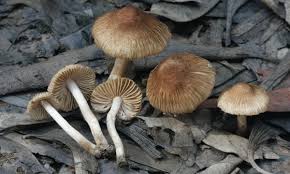
The quest for sustainable and environmentally friendly practices in agriculture has gained significant attention in recent years. One emerging solution that has piqued interest is the cultivation of edible mushrooms. Beyond their culinary appeal, mushrooms offer a range of environmental benefits that make them a promising alternative to traditional agricultural practices. In this article, we will explore the various ways in which cultivating edible mushrooms can contribute to environmental conservation and sustainability.
The Lifecycle of Edible Mushrooms
Understanding the lifecycle of edible mushroom is crucial to appreciating their environmental benefits. Unlike traditional crops that rely on photosynthesis, mushrooms grow through a process called mycoremediation. Fungi break down organic matter, transforming it into nutrients that support their growth. This unique lifecycle has far-reaching implications for the environment.
Carbon Sequestration and Soil Health
One of the notable environmental benefits of cultivating edible mushrooms is their role in carbon sequestration. Mushrooms contribute to the sequestration of carbon dioxide by breaking down organic matter and converting it into stable carbon compounds. This not only helps mitigate climate change but also enhances soil health.
The mycelium, the thread-like structure that forms the vegetative part of a fungus, acts as a natural soil conditioner. It improves soil structure, aeration, and water retention. This, in turn, promotes the growth of other plants and enhances the overall health of the ecosystem.
Reduced Environmental Impact Compared to Traditional Agriculture
Traditional agriculture often involves the use of large amounts of water, pesticides, and fertilizers, contributing to soil degradation and water pollution. In contrast, mushroom cultivation is a more resource-efficient and eco-friendly practice. Mushrooms can be grown on various substrates, including agricultural waste products like straw, sawdust, and wood chips. This not only reduces the environmental impact of waste disposal but also minimizes the need for synthetic inputs.
Furthermore, mushrooms require less space and can be cultivated vertically, making them suitable for urban farming and reducing the pressure on arable land. The efficiency of mushroom cultivation in utilizing available resources makes it a compelling option for sustainable agriculture.
Water Conservation and Mushroom Cultivation
Water scarcity is a growing concern globally, making water conservation a critical aspect of sustainable agriculture. Mushroom cultivation stands out as a water-efficient practice. Unlike traditional crops that require regular irrigation, mushrooms obtain moisture from the substrate on which they grow. This reduces the demand for large quantities of water, making mushroom cultivation an environmentally responsible choice in regions facing water scarcity.
Biodiversity and Ecosystem Preservation
The cultivation of edible mushrooms can contribute to biodiversity conservation and ecosystem preservation. Mushrooms play a vital role in forest ecosystems, forming symbiotic relationships with trees and facilitating nutrient exchange. By mimicking these natural processes in cultivation, we can support biodiversity and promote the health of ecosystems.
Additionally, the cultivation of wild and native mushroom species can help conserve endangered fungi and their associated ecosystems. This is particularly relevant as habitat loss and climate change threaten many fungal species. Supporting the cultivation of diverse mushroom varieties can contribute to the preservation of these valuable components of biodiversity.
Waste Reduction and Recycling
Mushroom cultivation is closely linked to the concept of circular economy and waste reduction. Many mushroom varieties can be grown on agricultural by-products and waste, transforming these materials into valuable food sources. For example, spent mushroom substrate, the leftover material after a harvest, can be repurposed as a nutrient-rich soil amendment. This practice not only reduces waste but also closes the loop in the production cycle, aligning with sustainable and eco-friendly principles.
Economic and Social Impacts of Mushroom Cultivation
Beyond environmental benefits, the cultivation of edible mushrooms has positive economic and social implications. Mushroom farming can provide a source of income for local communities, especially in regions where traditional agriculture may be challenging. The relatively low startup costs and the ability to use waste materials for cultivation make mushrooms an accessible and economically viable option for small-scale farmers.
Additionally, mushrooms are a nutritious and versatile food source, contributing to food security. They contain essential nutrients, including protein, vitamins, and minerals, making them a valuable addition to diets. By promoting the cultivation and consumption of mushrooms, we can address both environmental and food-related challenges, fostering sustainable development.
Challenges and Considerations
While the environmental benefits of cultivating edible mushrooms are substantial, some challenges and considerations must be addressed. These include the potential for the spread of invasive fungi, the need for responsible harvesting practices, and the energy requirements for controlled cultivation environments. Balancing the positive impacts with potential drawbacks is essential to ensure the overall sustainability of mushroom cultivation.
At Lone Star Mushrooms, our mission is simple yet profound—to provide a diverse range of high-quality mushrooms while prioritizing environmental responsibility. We believe in the magic of mushrooms not only as a culinary delight but also as a sustainable and nutritious food source.
Conclusion
In conclusion, the cultivation of edible mushrooms offers a multitude of environmental benefits, ranging from carbon sequestration and soil health to reduced water consumption and waste reduction. The unique lifecycle of mushrooms, their resource-efficient cultivation, and their positive economic and social impacts make them a compelling option for sustainable agriculture. However, it is crucial to address challenges and consider responsible practices to maximize the positive outcomes of mushroom cultivation. As we navigate the complexities of modern agriculture, embracing innovative and eco-friendly solutions like mushroom cultivation can contribute to a more sustainable and resilient future.




